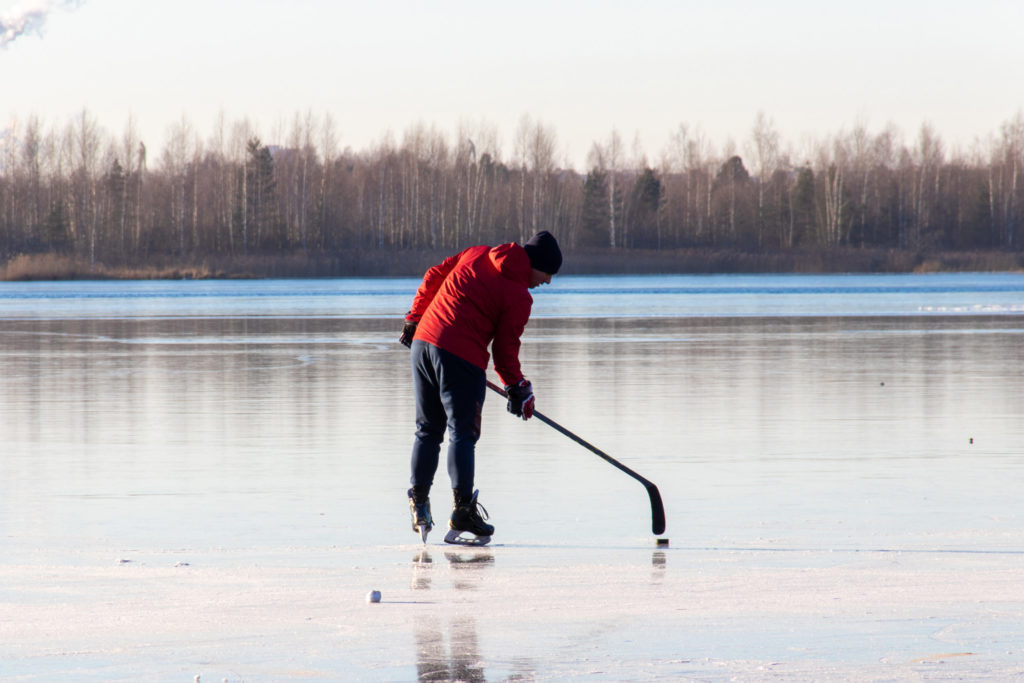If you grew up playing hockey and dreamed of one day playing in the NHL, you’re not alone. Every year, thousands of young hockey players hit the rink with the same goal in mind. While the odds of making it to the professional ranks are slim, it’s not impossible. With hard work, dedication, and a little bit of luck, you could one day find yourself skating alongside the likes of Sidney Crosby or Alexander Ovechkin. Keep reading to find out what it takes to become a pro ice hockey player.
Training
Ice hockey is a physically demanding sport that requires players to be in excellent shape. Training for ice hockey can include cardiovascular exercises, weightlifting, and on-ice drills. Players must be able to skate well and have strong endurance to play the full 60 minutes of a game.
Many professional ice hockey players start training as youths. They often participate in sports such as soccer or football in addition to playing ice hockey. This helps them develop the stamina and skills necessary for a successful career in professional ice hockey.
Professional ice hockey players typically spend hours each day training both off and on the ice. Off-ice conditioning includes running, biking, weightlifting, and plyometric exercises. On-ice conditioning includes skating drills, puck handling drills, and shooting practice.
Players must also eat properly to fuel their bodies for the strenuous activity of playing ice hockey. They need plenty of protein and carbohydrates to maintain energy levels throughout a game. Hydration is also important, especially in cold environments like rinks where players can lose up to one liter of water per hour due to sweating.
Play for a junior A or NCAA Division I hockey team.
In order to become a professional ice hockey player, one must first make it through the junior hockey system. Junior A teams are typically composed of players between the ages of 16 and 21, while NCAA Division I teams are made up of players who are 18 to 22 years old. To make it to a junior A or NCAA Division I team, a player must be highly skilled and demonstrate great potential.
Players hoping to play professionally must also have good character and be willing to work hard both on and off the ice. Making it through the junior hockey system is no easy task; only the best players in the world succeed. However, if a player is able to reach the pros, they can make a very good living playing the game they love.
Skill Development
One important way to develop skills as a hockey player is to attend skating and stickhandling clinics. These clinics offer players the opportunity to work on their individual skills with professional coaches. Players can also improve their skills by practicing regularly with teammates. In addition, they can watch videos of themselves and other top players in order to learn new techniques. Playing in tournaments also helps players improve their skills, as they are forced to compete against better competition. Finally, it is important for players to have a good attitude and be willing to work hard in order to improve their skills.
Injury Prevention
Injury prevention is a critical component of becoming a pro ice hockey player. Hockey is a physical sport, and injuries are common. The most effective way to prevent injuries is to stay in good shape year-round. Players need to be strong and flexible, and they need to have good endurance.
Players should also follow the proper safety precautions when playing hockey. They should always wear helmets and other protective gear, and they should never engage in dangerous behaviors such as fighting or boarding. Playing smart hockey is another important way to prevent injuries. players should avoid taking unnecessary risks on the ice, and they should make sure they know where all the players are before making any moves.
Overall, becoming a professional ice hockey player is a difficult task. However, if one is willing to put in the hard work and dedication, it is possible to achieve this goal. There are many different factors that go into becoming a professional hockey player and the next Jacob Panetta, but the most important aspects are mastering the skills of the game and having a strong work ethic.

